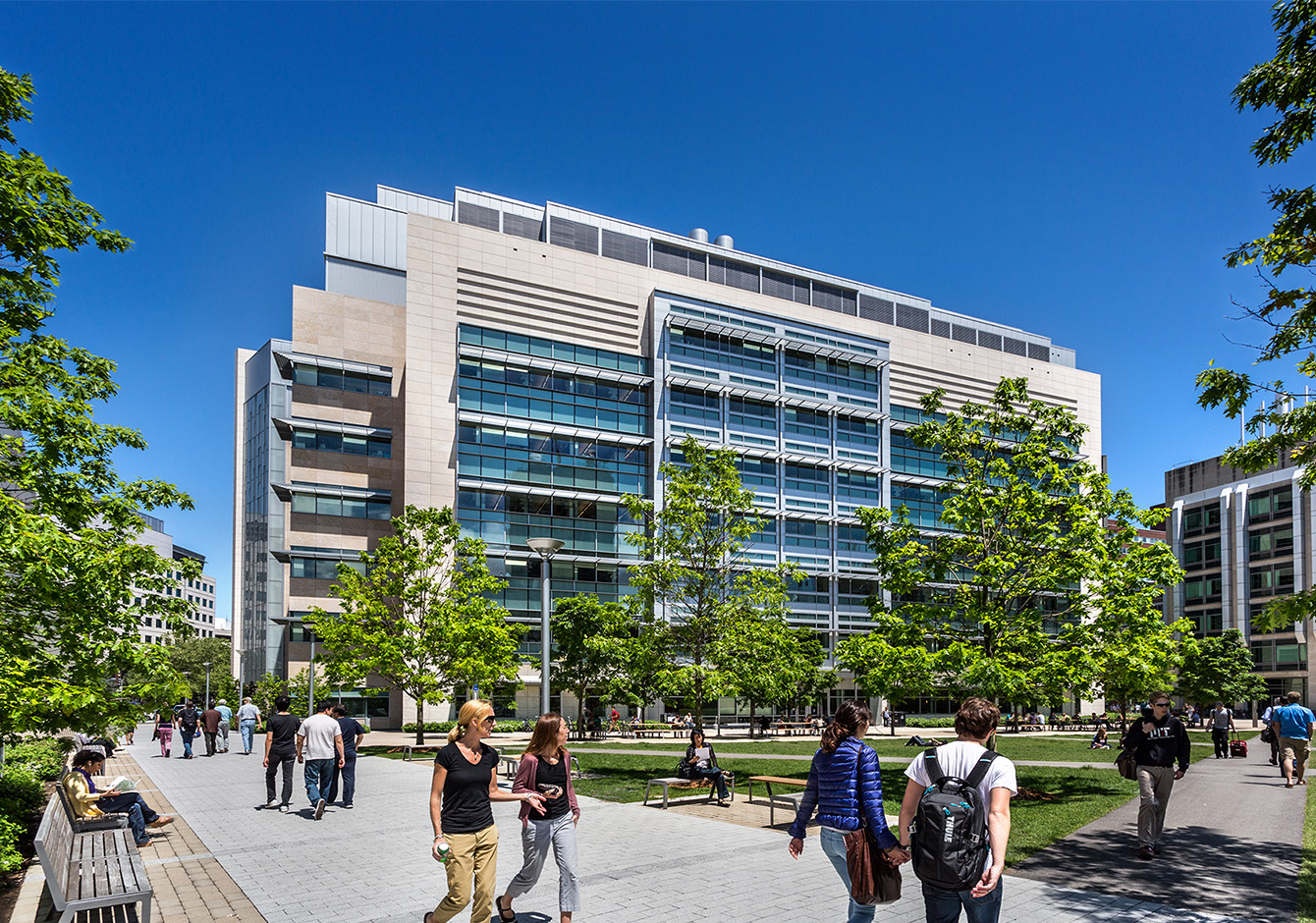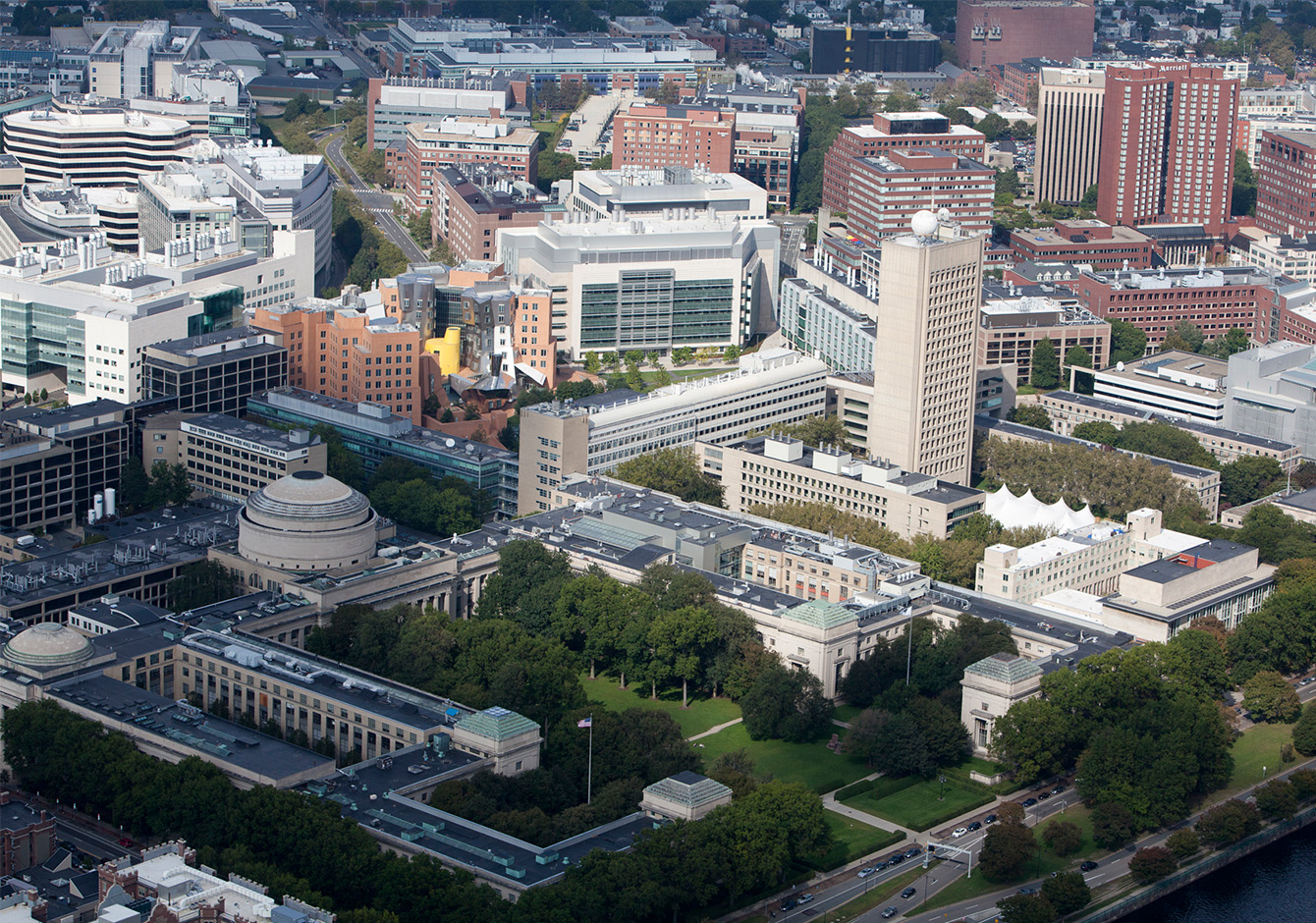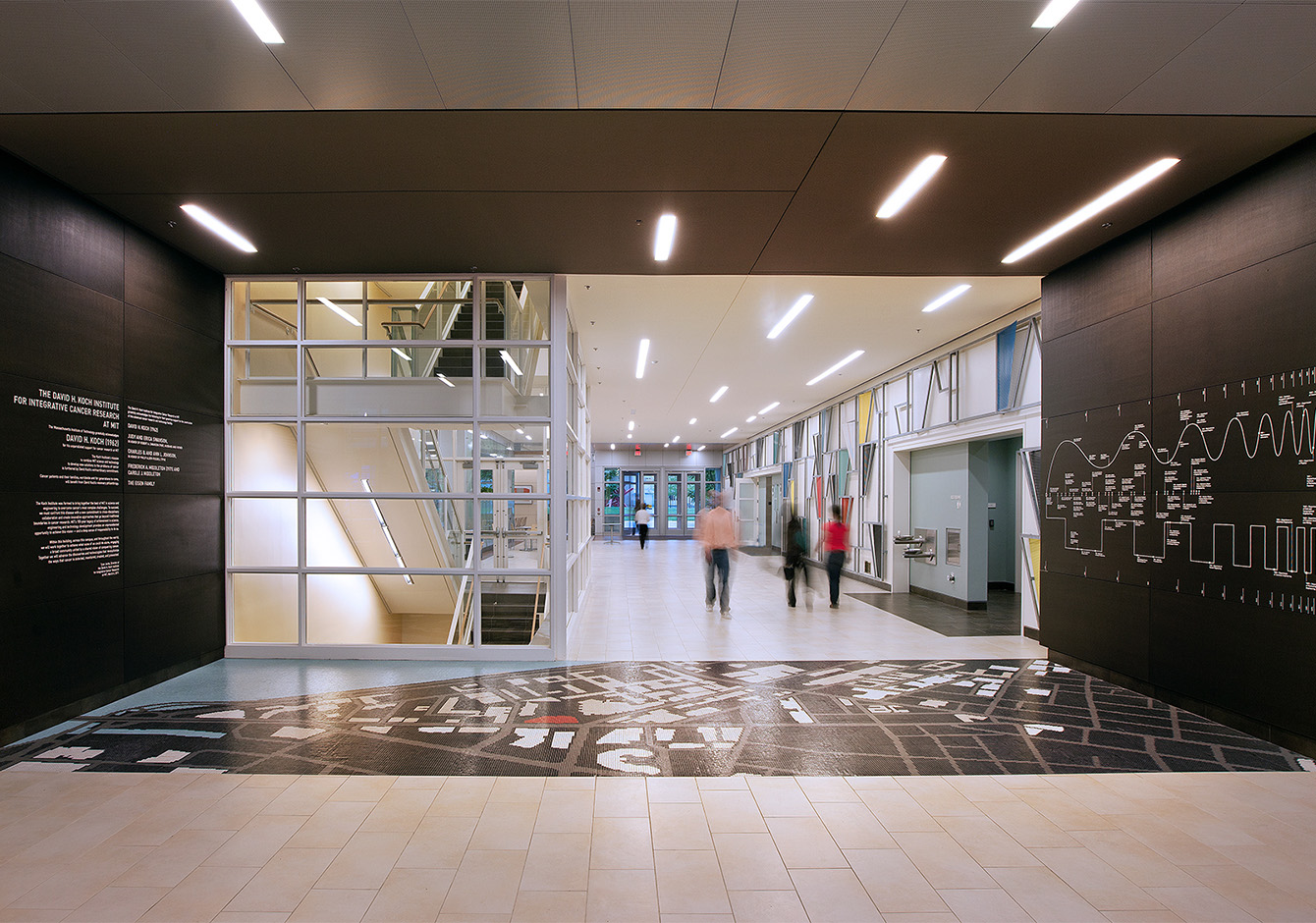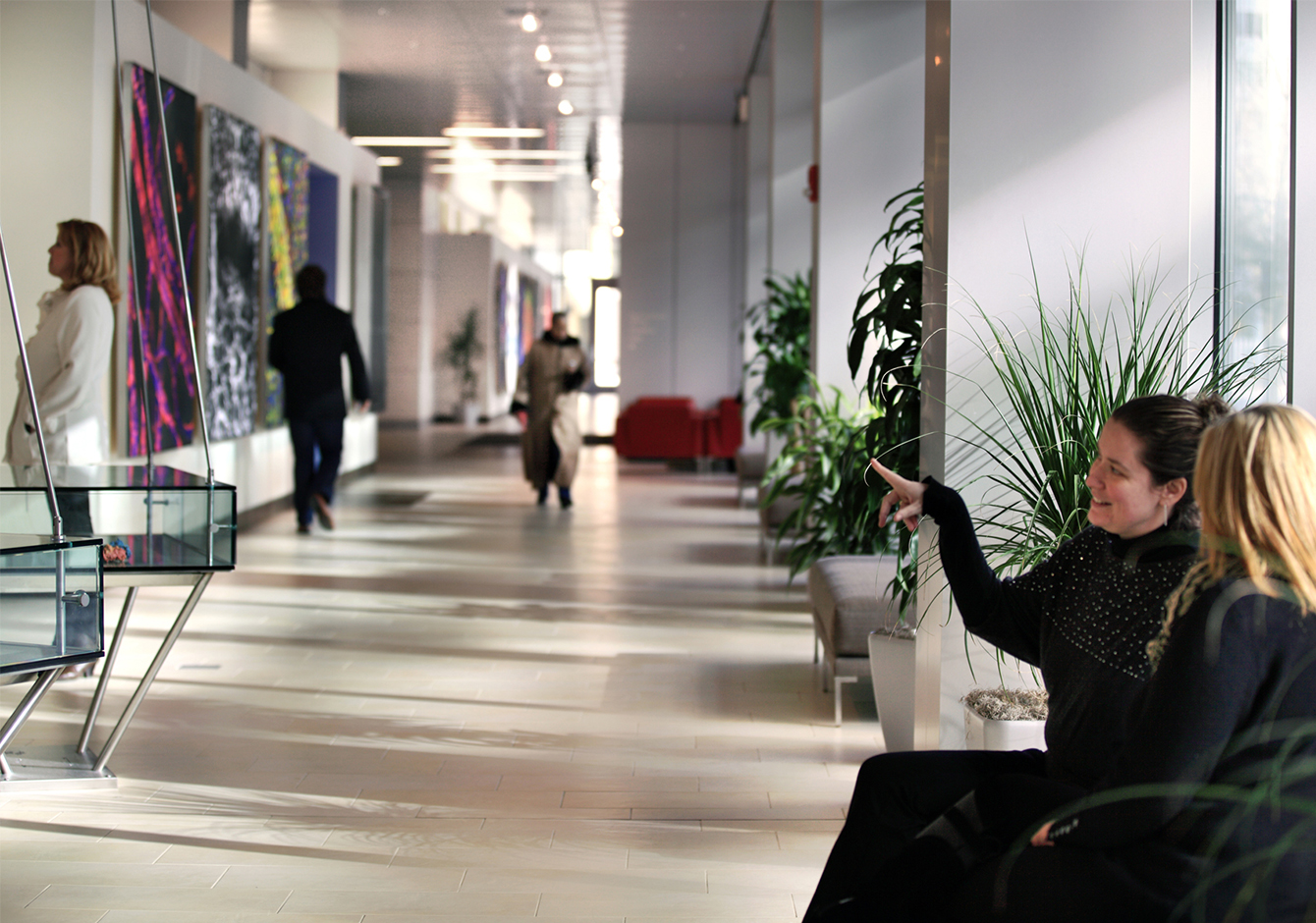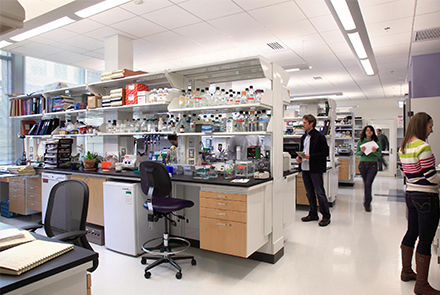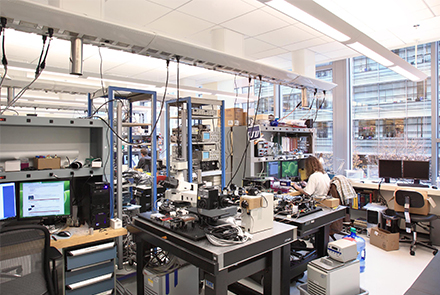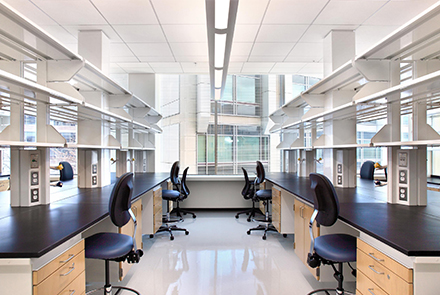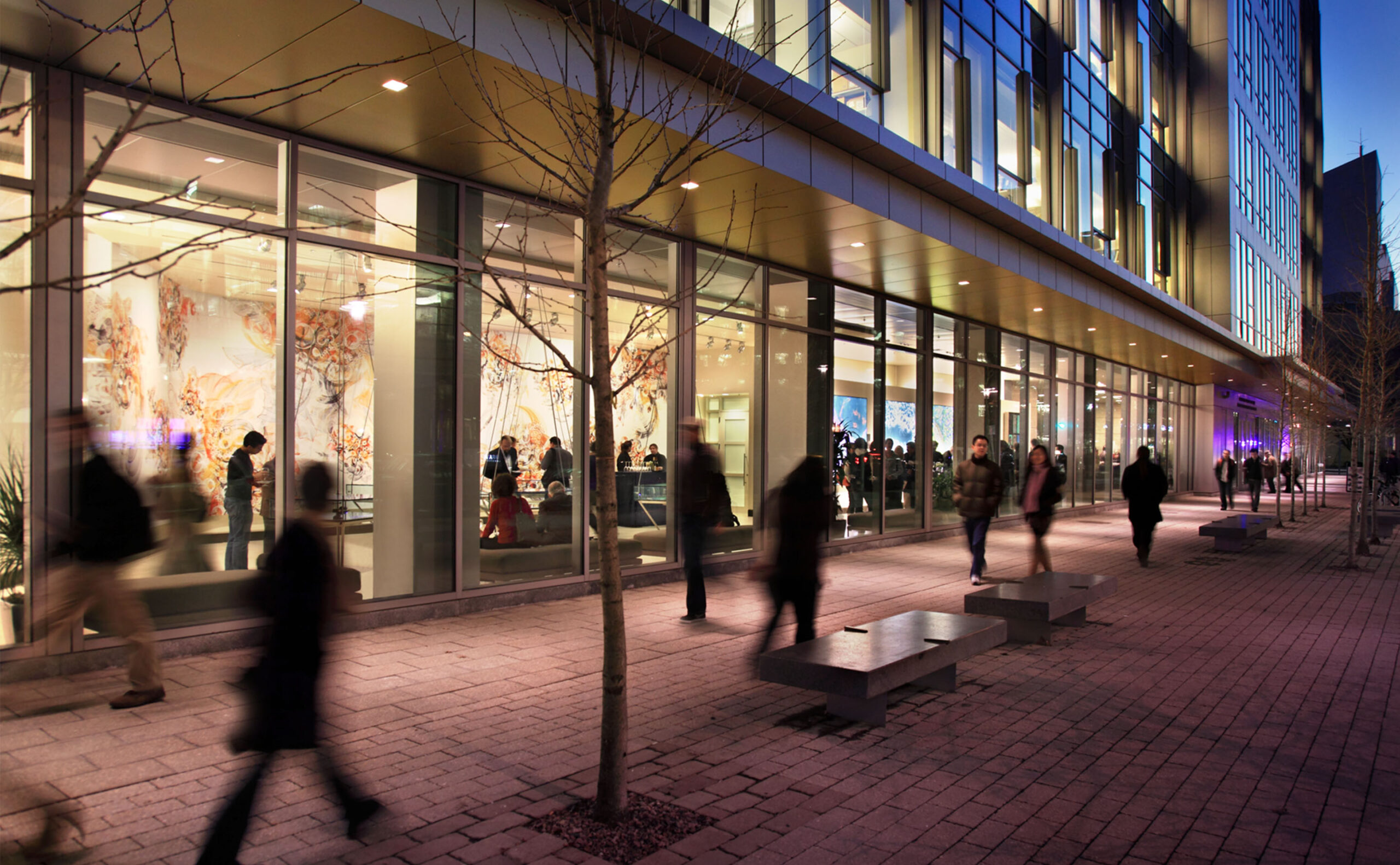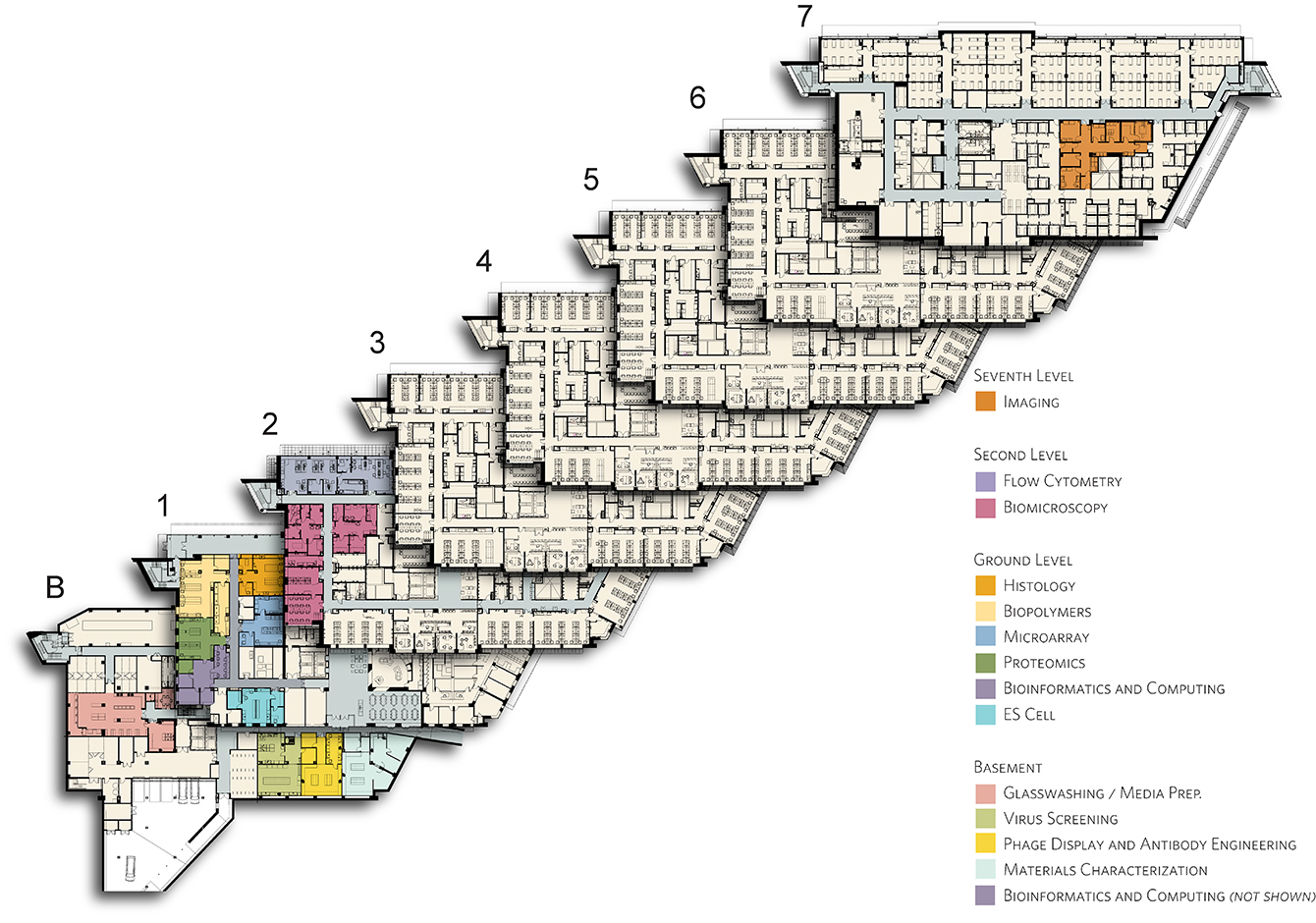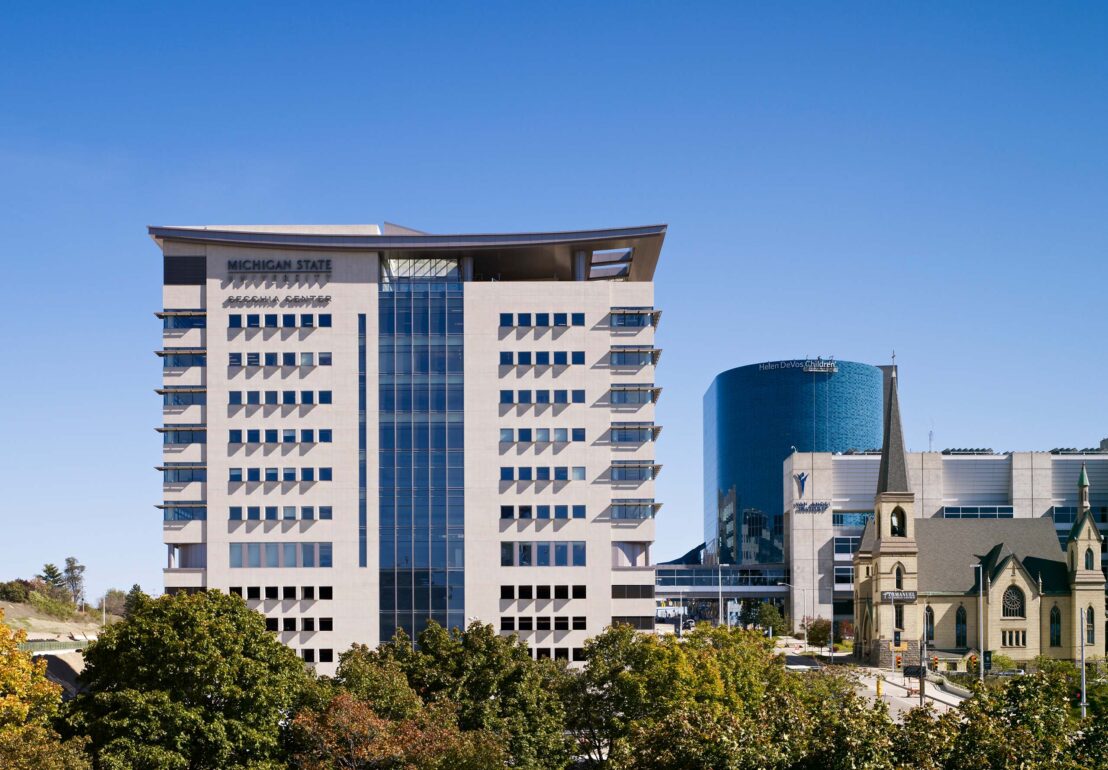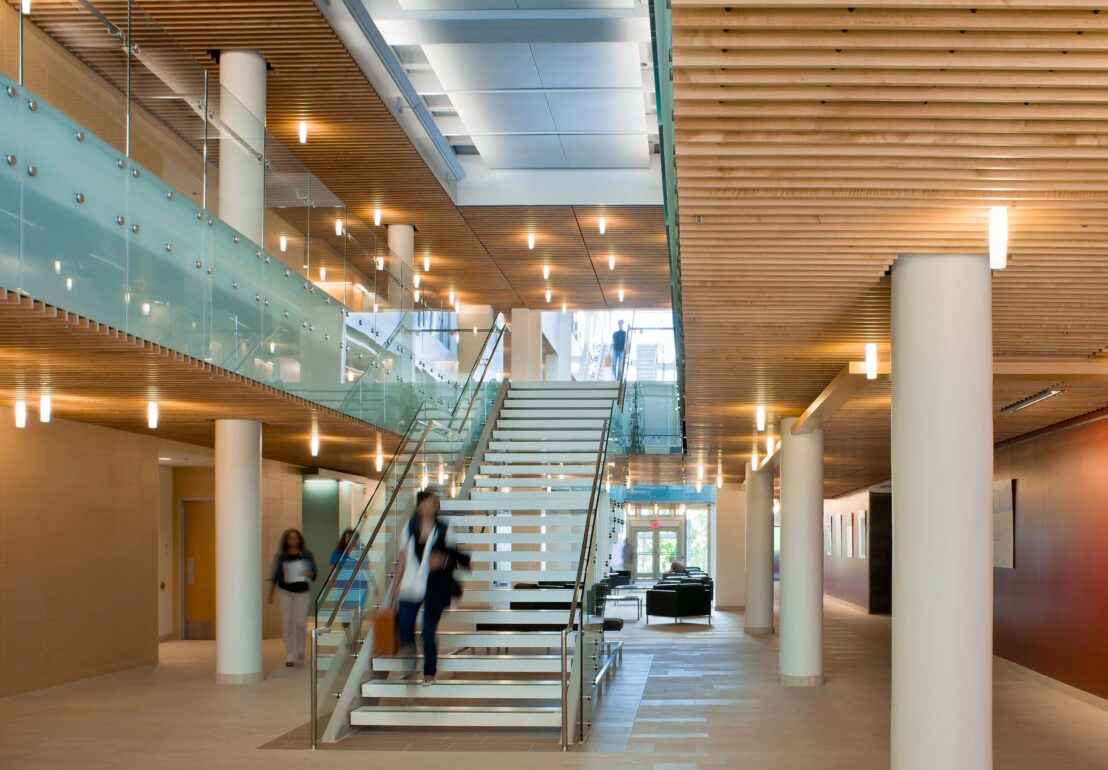More than 450 researchers conduct their work in the building, supported by research and core laboratories, lab support, vivarium, conference facilities, meeting spaces, cafeteria, offices, and administrative functions. The core laboratories in the building number more than a dozen and comprise the Swanson Biotechnology Center, which provides technology and expertise to the Koch Institute community, labs across the MIT campus, and neighboring research institutes.
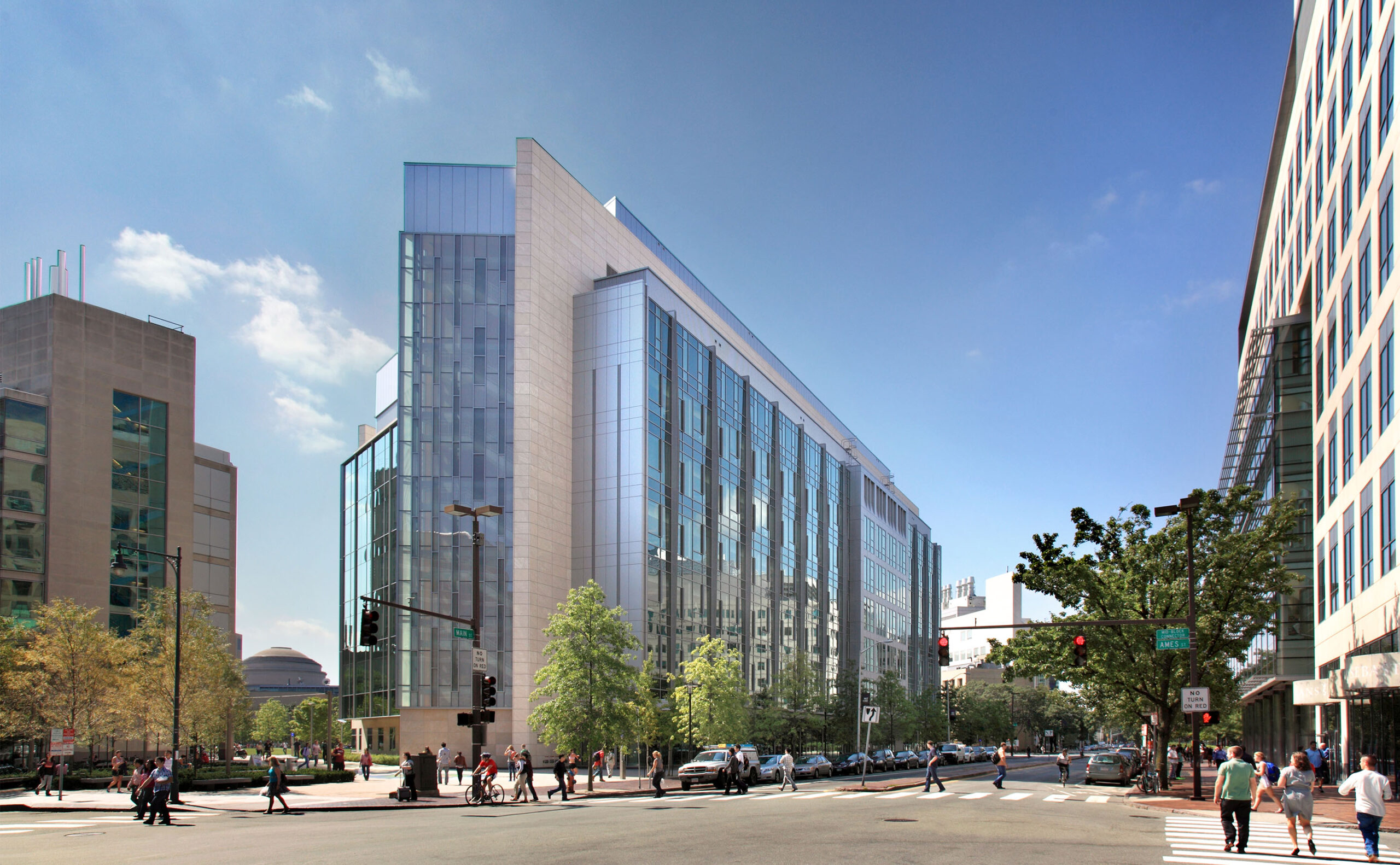
Massachusetts Institute of Technology
Koch Institute for Integrative Cancer Research
Cambridge, Massachusetts
Size
360,000 gsf
Services
Program verification
Feasibility Study
Lab Planning and Design
Architecture
Certifications
LEED Gold
The first interdisciplinary cancer research facility of its kind, the Koch Institute building brings together Biologists focused on understanding the disease at a molecular level and Engineering faculty interested in solving cancer-related problems. The building’s design concept—developed by Ellenzweig in collaboration with the Institute’s faculty—provides a high-quality research environment affording long-term flexibility that is conducive to researcher interaction and sharing of key support spaces.
